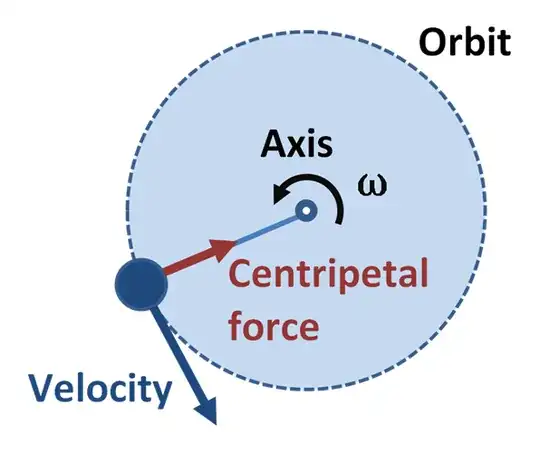If moon travels with constant speed in one direction and earth gravitation causes constant acceleration in perpendicular direction why moon does not eventually fall into earth? I mean if gravitation causes moon to fall faster each second (10m/s2) shouldn't after time velocity toward earth be big enough to cause it to fall ?
2 Answers
It can be said that the tangential speed of the moon in its orbit is represented by a vector that is constant in magnitude, but not so his direction. This variation of the vector direction (always remains tangent to lunar orbit), is actually a change in velocity, and therefore acceleration.

Why the moon does not fall on the ground? Simplifying to a circular orbit, the centripetal force acting on the moon's is the gravitational force, while by the movement itself, a centrifugal force that keeps the system in balance, is generated.
- 599
- 2
- 8
Acceleration can change velocity in two ways - by changing its magnitude, and by changing its direction.
Essentially, Earth's gravity is constantly steering the moon around the Earth.
Your initial premise - "If moon travels with constant speed in one direction" - is incorrect. The moon's direction is constantly being changed by the gravitational acceleration.
- 645